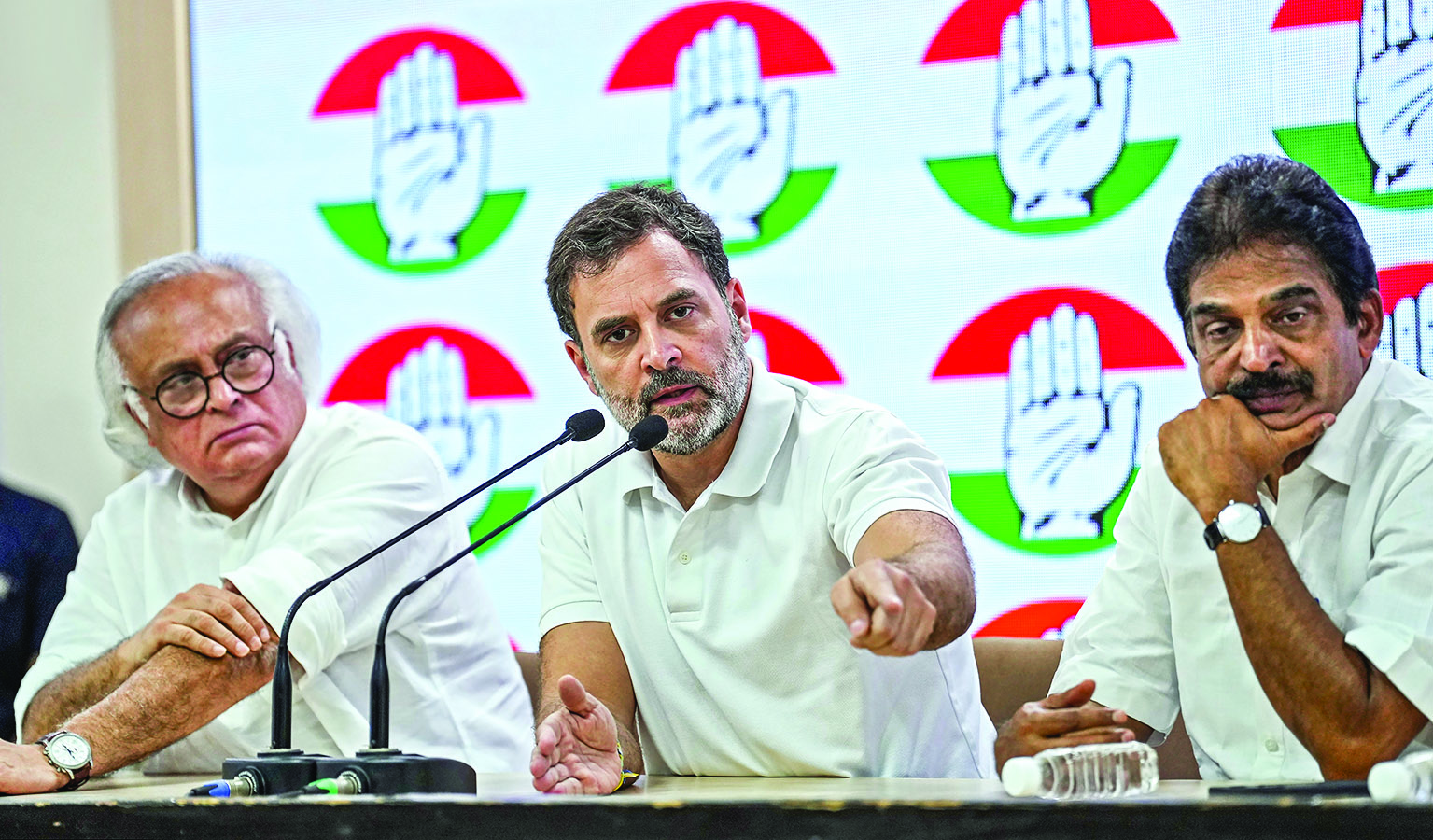Cong calls for ‘intensive diplomatic engagement’ to resolve crisis

New Delhi: Amid the India-Canada diplomatic row, the Congress on Friday reiterated that the fight against terrorism has to be uncompromising and called for “intensive diplomatic engagement” to resolve the “serious crisis” while ensuring security of Indians in that country.
Congress general secretary Jairam Ramesh also asserted that the security of thousands of Indian students and professionals studying and working in Canada must be protected at all times.
‘The Congress reiterates that our fight against terrorism has to be uncompromising especially when terrorism threatens India’s sovereignty, unity and integrity. The Congress hopes that intensive diplomatic engagement between the two countries will help resolve the current serious crisis between India and Canada,’ he told reporters here when asked about the diplomatic row.
In a blunt and clear message, India on Thursday asked Canada to come down hard on terrorists and anti-India elements operating from its soil and suspended visa services for Canadians, as escalating tensions between the two nations over the killing of a Khalistani separatist in June pushed their ties to an all-time low.
Tensions flared between India and Canada early this week following Canadian Prime Minister Justin Trudeau’s explosive allegations of a “potential” involvement of Indian agents in the killing of Nijjar on his country’s soil on June 18 in British Columbia. India had designated Nijjar as a terrorist in 2020.
India angrily rejected the allegations as “absurd” and “motivated” and expelled a senior Canadian diplomat in a tit-for-tat move to Ottawa’s expulsion of an Indian official over the case.
Speaking about the row, Ramesh said there are over 300,000 Indian-origin students studying in Canada as well as thousands of professionals belonging to different communities, religions, castes languages from India working there and contributing to Canada’s economic growth and Indo-Canadian relations.
‘We have an institute called the Shastri Indo-Canada institute named after India’s second prime minister. Clearly India and Canada have had a long economic engagement, technological engagement, our nuclear programme for example...Our reactors are called CANDU (Canada Deuterium Uranium), this cooperation goes back to the 1960s to the time of Homi Bhabha,’ he said.



